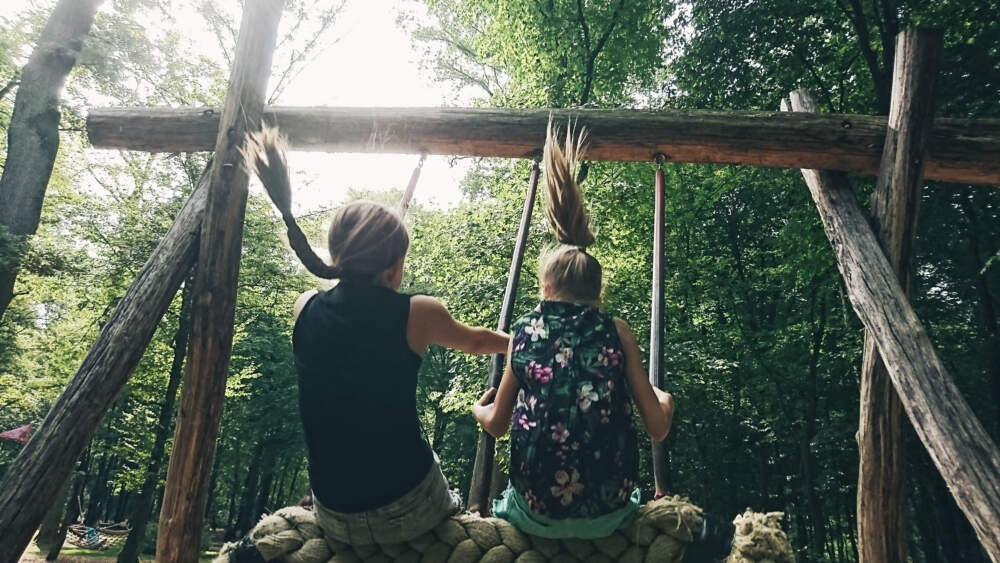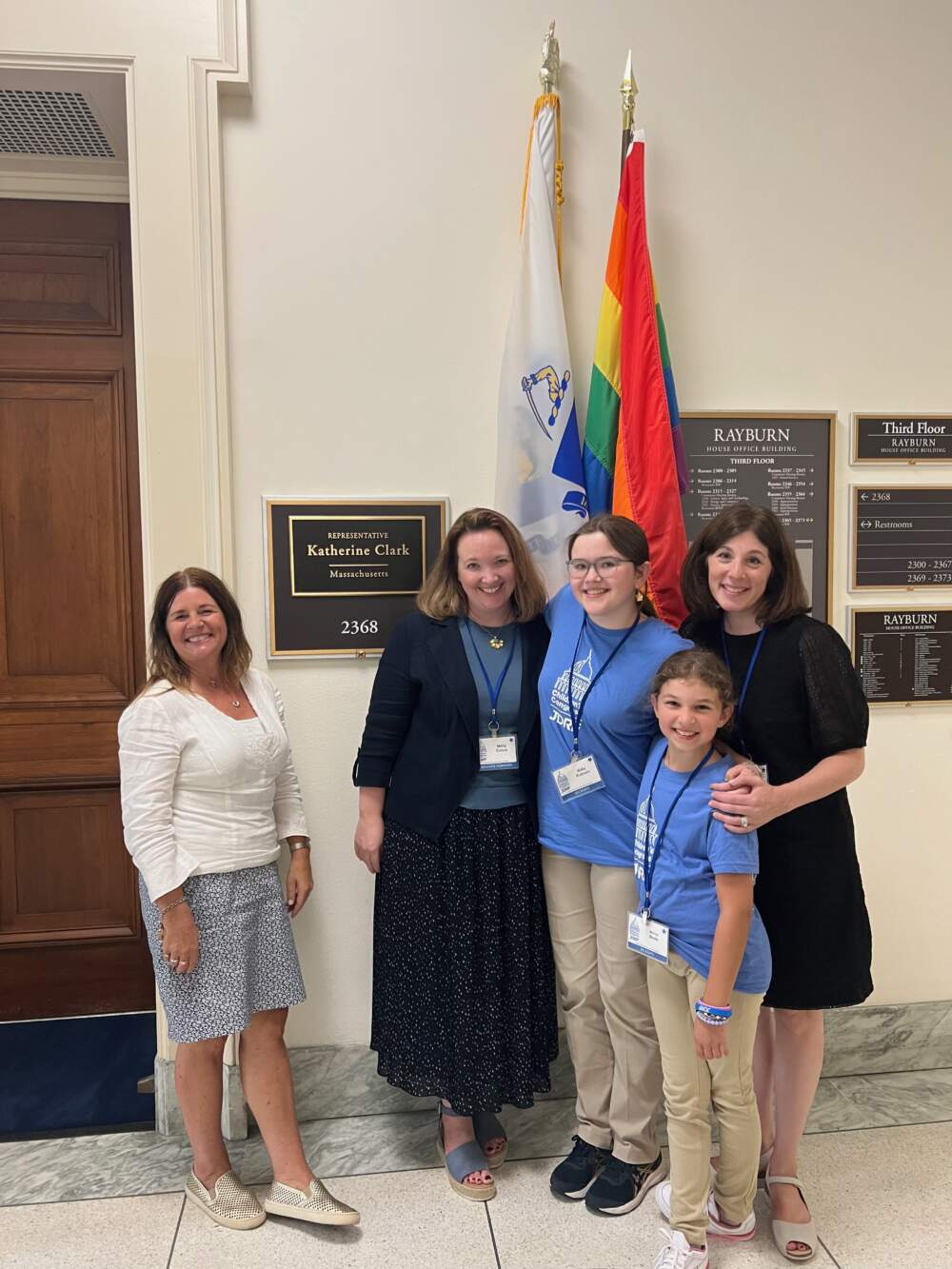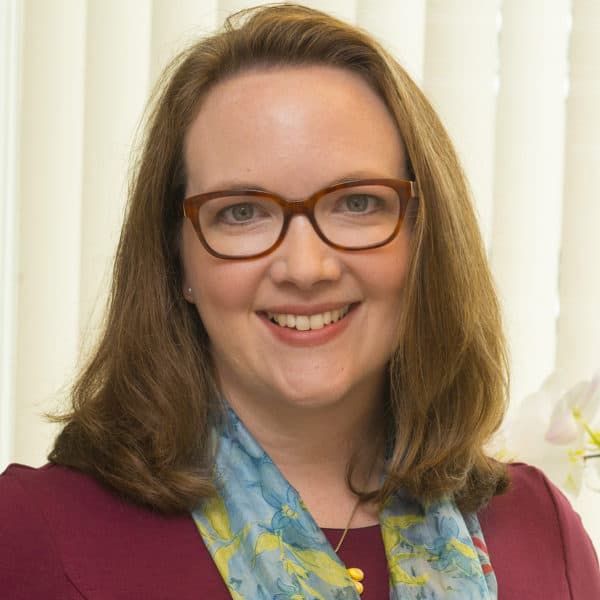Advertisement
Commentary
Summer camp is for everybody

In these late August days, the next school year begins to come into focus. But before we lose the summer heat, we should all take a moment to give thanks to the magic-maker of this sweet season: summer camp. Mostly lost during the pandemic years, this year, camps rejoiced in COVID’s small shadow, bringing kids together for languid days filled with ritual, games, arts and crafts, laughter, and hijinks.
For kids who have special needs, summer camp also provided a few enchanted days when the world was designed entirely for them. As a clinical neuropsychologist, I work with kids who have developmental differences. A boy with unrelenting tics, characterized by a constant urge to say or do something, bounced into my office a few weeks ago exclaiming that Tourette camp had been “the best week ever.” He explained that it was “awesome” that everyone had tics – the behaviors that he normally works so hard to suppress were, for once, social currency. Later that week, another child with dyslexia told me she’d made a new friend at reading camp after noticing that they had trouble spelling “just like me.”
Belonging to a peer group promotes healthy brain development. Learning to give and take, appreciate another’s interests and see an alternative perspective requires practicing some of the same skills that help with emotional regulation and problem-solving as adults. To support skill development, as kids move from late childhood to early adolescence (prime camp years), the brain becomes increasingly receptive to peer influence, showing exquisite sensitivity to cues that might signal peer rejection or acceptance. This is why it is so hard for kids to “just shake it off” when they are subjected to teasing or bullying for their differences. It is also why they experience such profound happiness when they find other kids who truly understand them.
For parents, sending your child away to summer camp can be bittersweet, but I suspect this might be more acute for those of us whose kids have special needs. As the mom of a daughter with Type 1 diabetes, I look forward to her weeks at “Type 1 camp” almost as much as she does. When she was very little, those weeks provided respite from an unrelenting roller coaster of blood sugar highs and lows. I could catch my breath because I knew that she would be safe with the camp’s medical staff while I was off duty.
Now that she is a teenager, I smile as I watch her run off to her cabin, but also feel the distance between us that her disease creates — I will never know what it is like to live with it. I feel a twinge of guilt about being able to get a break from its constant presence.

Those pangs of wistfulness are quickly swept away by the evidence of her transformation after being fully immersed in a world where her disease becomes the key for acceptance into an exclusive club. When I picked her up from camp this summer, I could feel that her confidence was recentered. She happily chattered nonstop all the way home about the vibe, the dramas, swimming in the lake, and also about the latest medical equipment — as if it were fashion accessories rather than life-sustaining devices. She was ready to live a little more boldly in a world that is not always understanding of her needs.
The day after she returned home from camp, we got on a plane and flew to Washington D.C., where as a representative for the Juvenile Diabetes Research Foundation (JDRF) Children's Congress, she and her peers filled a U.S. Senate hearing room to testify for insulin affordability and research to support better diabetes management and ultimately, a cure. The delegates sat cross-legged on the hallowed floor, looking up at their elected representatives with determined faces, a group too large to be ignored. I sat on the sidelines with the other parents, in awe of our children’s collective power. Later we trailed behind them as they marched into the offices of our individual states' senators and Congressional representatives to advocate on behalf of millions of children like them.
It is easier to be brave when you know you’re not alone. I spent time this summer thinking about Judith Heumann, a trailblazing disability rights advocate who passed away earlier this year. Heumann was the force behind Section 504 of the Rehabilitation Act, the precursor to the Americans with Disabilities Act (ADA). Section 504 is why my daughter was allowed to remain in public school after her diagnosis. It’s why my patients with Duchenne muscular dystrophy have access to wheelchair ramps and elevators, and why my patients with tics, ADHD, anxiety, depression and learning disabilities have academic accommodations that support them in the classroom.
In the Oscar-nominated documentary film, “Crip Camp,” we first see Ms. Heumann as a teenager at a summer camp for kids with disabilities. Her fellow campers became lifelong friends, who would later join her to protest for the full implementation of Section 504 and then again for subsequent disability rights legislation. In delightful unscripted videos, Ms. Heumann and the other campers' deep connection to each other is palpable – we see teenagers figuring out their identities and the joy that comes from being fully recognized and accepted as they are.
Fused by the adolescent brain’s craving for social connection and belonging, camp relationships may last a lifetime. For kids with differences, those relationships may give them the strength to make the world become a more inclusive and understanding place. I wish that all kids with differences could have at least one glorious summer week of being in a community of people who are “just like me.”
Then maybe our broader communities would be better able to make spaces for everyone to belong.

